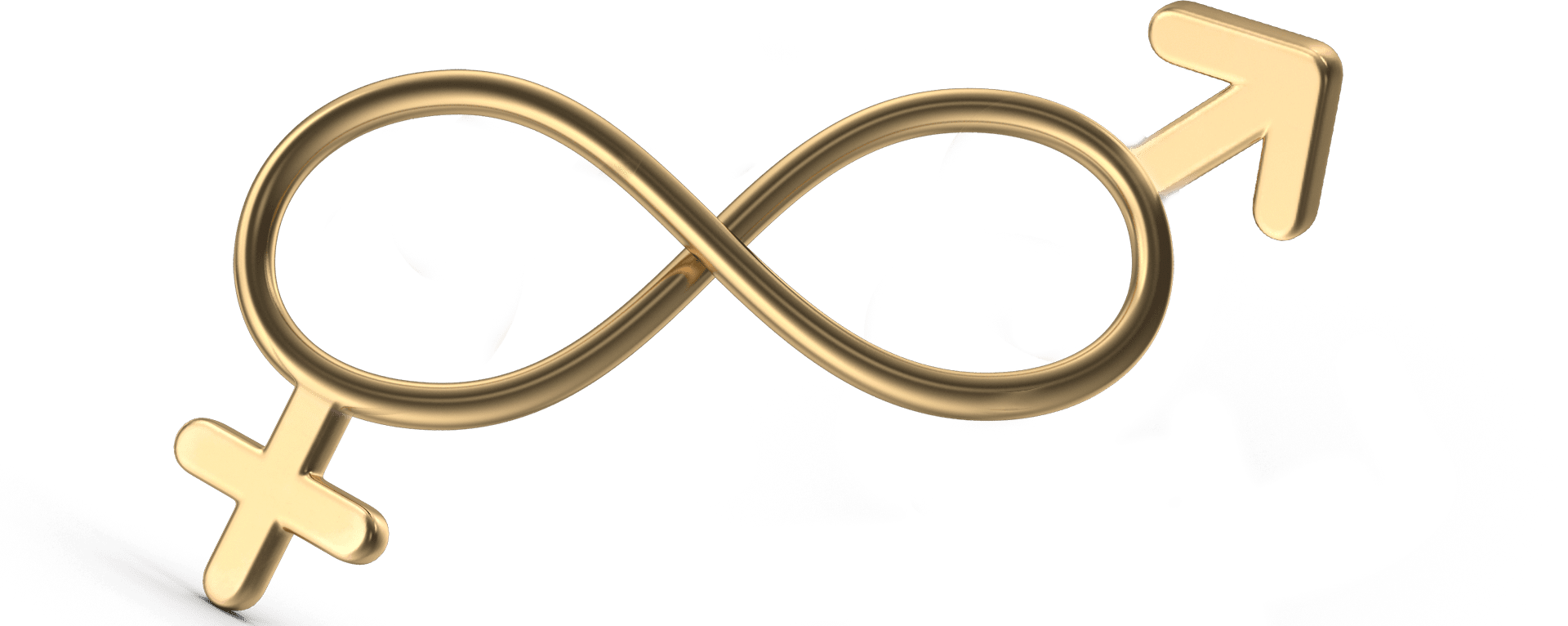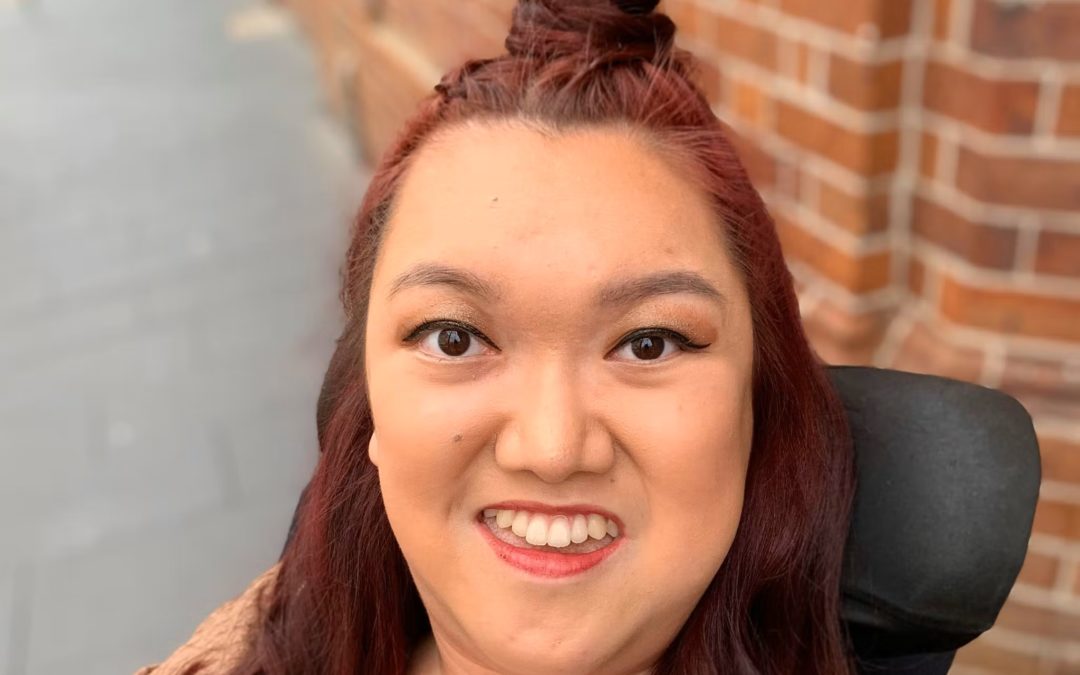
by awardsadmin | Nov 22, 2022 | Boards
Melanie Tran is a woman in tech, a traditionally male-dominated industry sector, who challenges the status quo not just because she is female but also because of her disability. “I often find myself working twice as hard just to prove my capability,” she says. But she has not let that stop her.
At 19, Melanie took on her first board role with Digital Literacy Foundation (previously known as LeepNGO), a not-for-profit organisation, focused on digital inclusion and addressing the challenges of the digital divide. She has continued to step up when others step back never letting anything hold her back. She was also on the board before becoming Chair for Children and Young People with Disability Australia.
Feeling like she has more to give and wanting to make a real difference, Melanie has stepped onto the board of the International Youth Foundation with initiatives that directly serve millions of young people across the globe to promote youth agency, economic opportunities and leadership. She is an Australian representative advocating for young changemakers. Melanie is not someone that has had to chase these roles. When asked how she got that position, she humbly replies they gave her a call. She first met them when she participated in the Laureate Global Fellowship, where she travelled to Spain to take part in a leadership and social entrepreneurship retreat alongside 19 young people from across the globe.
It was an amazing experience for her and clearly, she made an impression on the foundation’s leaders, who then chased her up many years later.
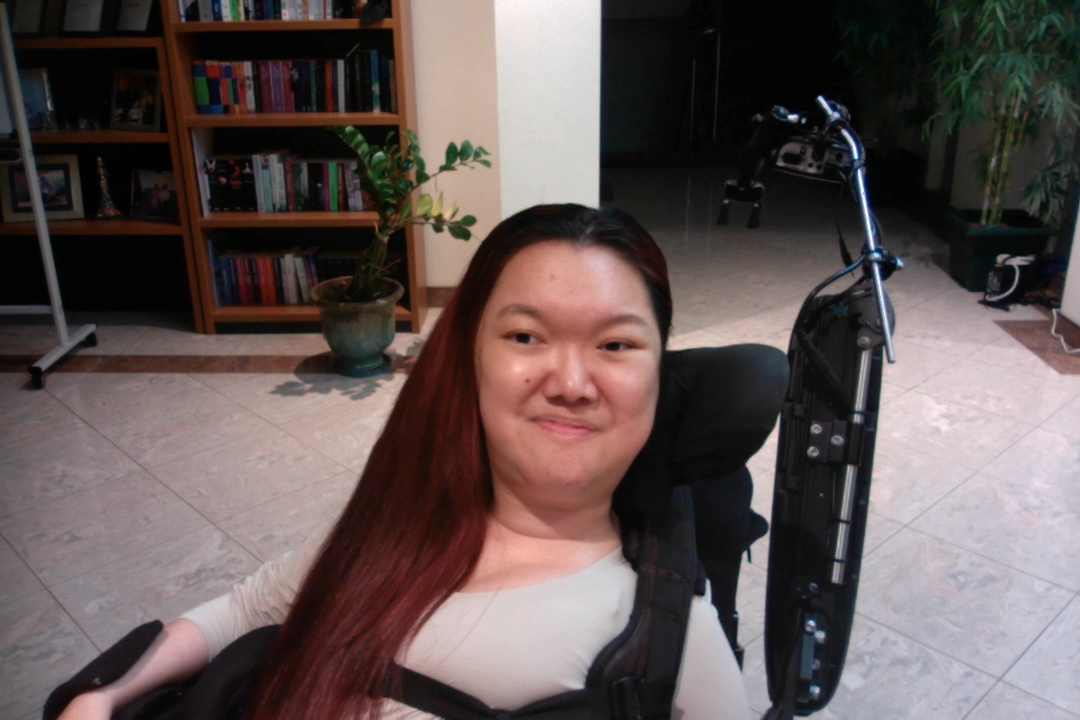
In her day job, Melanie is a Product Designer. Currently, she is very proud of the work she has done at Hireup to simplify the experience for those with a disability to find, manage and hire support workers who are able to assist with daily living activities.
When asked about working as a woman in tech and in the intersection of design, innovation and social impact, Melanie said “It is about creating platforms for unique and powerful voices to be heard, and empower women across the globe to create opportunities for themselves and those around them.”
Eight years ago, she vowed she would use her skills and expertise, as well as her own lived experience as a catalyst to drive innovation and positive social change in the healthcare and technology sectors, and today that dream has crystallised into her research project. She is currently doing her PhD on harnessing the power of design and technology to improve the communication experience between young people with chronic conditions and clinicians who specialise in paediatric emergency medicine. Her mission is to create a solution that may address some of these communication challenges, driven by the voices of young people, their parents/caregivers and paediatric emergency clinicians.
As you can see, nothing will hold Melanie back. Her advice to others wanting to challenge the status quo, is, “Be bold and brave” and “It’s okay to make mistakes because we can learn from these lessons. It’s about embarking on the journey of continuous transformation.”
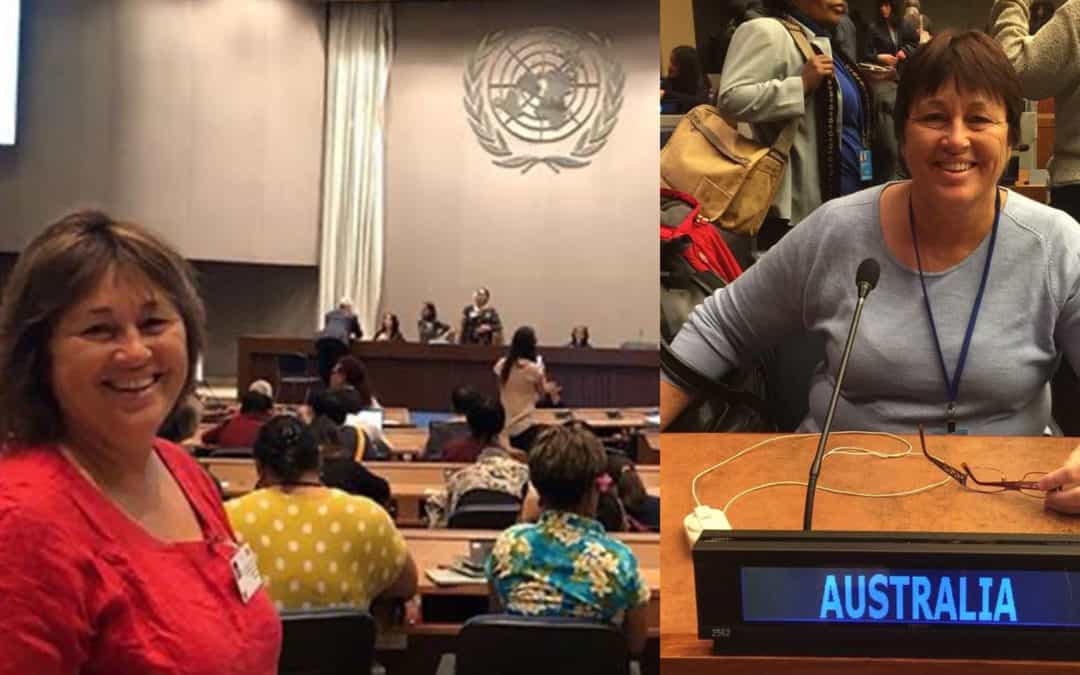
by awardsadmin | Nov 14, 2022 | Boards
Leonie Noble is a force for change. She uses her role as President of the National Rural Women’s Coalition to influence and create space for women both in Australia and internationally.
For Leonie, “It all started when I married a fisherman.” Being a fisherman’s wife in Western Australia meant spending 5 to 6 months a year at the Abrolhos Islands. It was during one of these stints, after yet another government edict which had a significant impact on the local fishing community, that Leonie lost patience. She felt the government should be consulting prior to delivering their changes. So, she rounded up the local fisher folk and started an organisation which in rapid time grew and became the voice of the Abrolhos with governments consistently consulting in a respectful and professional way.
After much letter writing, their voice was heard, and the Minister came to visit. He was impressed with the Abrolhos community and their stewardship but in the case of Leonie, the then Minister for fisheries felt if she wanted greater input then she would need to become part of the team that developed policy. Soon she was allocated to a number of boards and committees. As the only woman in attendance, she was often confused with the tea lady. One time, she recounts, she was greeted with, “It’s great to have you here Leonie, now can you make the coffee.” To which she replied: “No thanks, but I will have a tea with one sugar.”
Leonie is passionate about stopping bullying behaviour and discrimination regardless of who is displaying it. She is immensely proud of the culture her team has created at the National Rural Women’s Coalition (NRWC) of which she is the National President. They work with Rural Regional and Remote women, Indigenous and migrant women, the LGBTQI+ community, and Women with Disabilities to name a few. Leonie says, “We do this because we believe that by empowering women, we empower a community. The lessons of equity and equality, and the difference between the two, become easy lessons to take home and be shared with and by everyone.”
Many of her other actions were driven by the desire not to be the token woman and to help other women obtain a voice. She soon discovered awards were a wonderful way to give women a profile which allowed them access to sponsors, governments, and open doors. In the seafood industry, to balance the men recognised for lifetime achievements, she created the Women in Seafood’s Honour Role. This launched in 2019 with an inaugural twenty women recognised.
As President of Women in Seafood Australasia (WISA), she automatically became part of the Rural Women’s Coalition. It was her roles in WISA and the NRWC that aided Leonie’s application to become an Australian Delegate to attend the APEC WEF in Peru. As part of the delegation, she realised many of the issues women face are the same across the globe. Whilst there she connected with the Chilean delegation and soon became a mentor for their women from the seafood industry.
Since then, Leonie has not looked back. For the past decade, she has been working in the Civil Society Human Rights arena fighting for equality and equity across the globe. This is through speaking at forums such as international conferences and attendance at the UN Commission for the Status of Women (CSW) in New York each year and the Economic and Social Commission for the Asia Pacific in Bangkok. She humbly comments about how much of an impact the Australian Rural Women’s contingent has had on some of the global policies and that Australia is highly regarded on the world stage.
These days, she is still not taking no for an answer and continues to find new ways to open doors for civil rights and women’s leadership and influence in many locations. Her advice is, “Do what you need to do, make it happen, and don’t worry about what others think.”
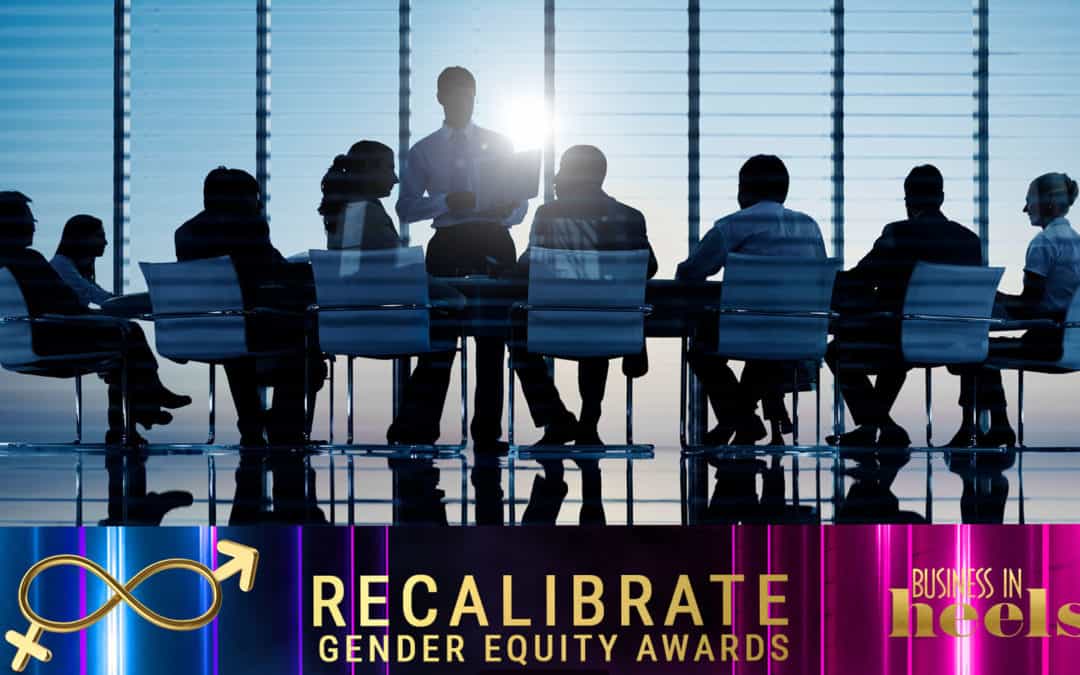
by awardsadmin | Jun 23, 2022 | Boards
According to WGEA 2021 report, “Increasing the share of women on boards leads to better outcomes for gender equality …across a suite of metrics”.* In fact they found that a board of 50-50 has led to a 6.3% reduction in the gender pay gap for full-time managers.
Why does this make a difference?
According to Paul Zahra Australian Retailers Association CEO, and judge for the Gender Equity Awards,” If you take a look at retail, women contribute around 75% of consumer spending and make up 57% of our workforce, yet only occupy 27% of board positions at Australian retailers. For a business to truly achieve gender equality, the leadership needs to come from the top and companies need to ask themselves if their executives are a reflection of their broader workforce and customers, and if not – why not?” He sees the results across the entire retail industry and he agrees that “Gender equality comes down to leadership, and the best action corporate Australia can take is setting and maintaining a 50-50 representation of women on company boards.”
And if we take Australia as a whole, whilst some businesses are taking action, there is still a long way to go. Many of the companies claim the problem is the lack of talented women who can contribute to boards.
We asked another judge, Jo Plummer, experienced board Chair, whether she felt this was an adequate excuse.
“Like with most change, it requires the courage to think and act differently. It’s often the embedded systems that hold us back when it comes to creative thinking and like with little red cars, once you see one……they’re everywhere! I was speaking with an experienced female recruiter regarding ASX directorships just two months ago who told me their clients would only likely consider candidates with C-suite experience*#@! We know that is a very small pond to fish in and is unlikely to address gender equity across ASX directorships. Great female talent exists in all sorts of crevices which we must be prepared to explore.” A very small pond indeed with only 18 CEO in ASX listed companies as of 2021. She went on to suggest that skilled CEOs were to be found in our entrepreneur community running medium businesses.
From the recruitment perspective yes, good talent is hard to find, especially if you are looking for a tick box solution. There are many capable women out there that could do a brilliant job as board directors, however, all too often firms are insisting they have ASX, C-suite experience. It is the next bias to look for board directors who reflect the existing team, rather than reflect their consumers & stakeholders. Sharon Crain, Managing Director, Open Door Recruitment and Development has this challenge every day as she focuses on female recruitment. Her advice is to businesses looking to find more female board members need to “make a conscious decision to change and be willing to compromise to achieve that change”.
Encouraging open-minded thinking is one-way boards can open themselves up to more diversity which has been proven to lead to better profits and business success.
If you know of other activities or companies that are driving gender equality we encourage you to invite them to enter Recalibrate: Gender Equity Awards to determine what are the best practices for businesses of all sizes. We want to know who the individuals are making a difference, and to celebrate their achievements. The goal is to speed up gender equity by raising awareness of great behaviour and sharing best practices.
The Awards close on 30th August. https://aij.dzr.mybluehost.me/website_40de3b07
*Wgea curtain report


